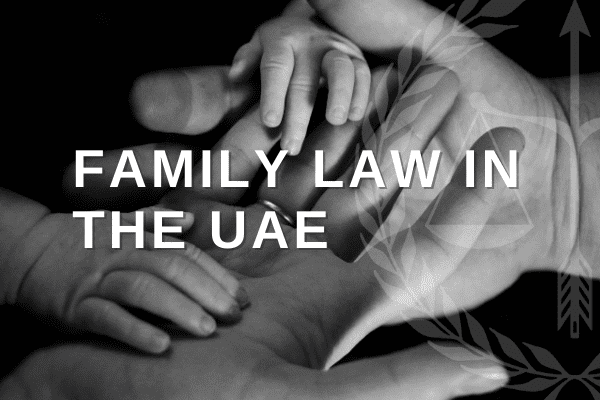Dubai Debt Collection Services | Payment Recovery Lawyers

Dubai Debt Collection Service | Debt Collection Lawyers
The debt system dates back to the barter system wherein goods were exchanged for goods till it was replaced by currency. Debt collection is the process of collecting overdue debts owed by the individuals as well as by the companies who have incurred debts. As per the UAE law limitation for filing a legal action for debt recovery is between 2-10 years.
What is the debt collection procedure in Dubai?
Extra-Judicial Process To Recover Debts
UAE debt collection lawyers assists in collecting the debts outside the court. This collection service collects all the information about the debtor and then contact the debtor on behalf of the lender in a very professional manner to remind the debtor about his unpaid debt. This is done mainly via telephone or email. This way they inform and educate the debtor about possible legal consequences of non-payment of debts.
If amicable settlement can’t be reached between the parties, a petition can be filed with Dubai Court. As a first step the Dubai Court will notify the debtor through a registered demand letter which requires him to pay the amount and the late fees within fifteen days. If the debtor does not pay the debt the lawyer will prepare the documents, court memos to be filed before the civil court along with the supportive documents, emails and correspondence that prove creditor is entitled for the outstanding amount. The lawyer will then pursue the hearings and will execute the judgement.
Court Procedure To Recover Debts
When the extra-judicial method to recover debts fails then the only option is to resort to court intervention. To protect the Emiratis and residents who are facing financial troubles to restructure their debt with the possibility of receiving “new concessional loans” Law No. 19 of 2019 was passed. This law gives two options to resolve financial bankruptcy:
Financial Obligations Settlement
The court shall appoint one or more specialists to help the debtor throughout the process and design a settlement plan for the financial obligations based on circumstances. Once this is done, creditor will vote and it will be implemented. The court has the authority to terminate it if:
The debtor abstains from or intentionally damages or conceals some of their possessions, or if the debtor makes false assertions, or if the debts are not paid for one or more than forty consecutive days after maturity. In such case the debtor may file for bankruptcy.
Insolvency and financial liquidation
The second method to recover debts is to liquidate assets and money to repay the debts. This is done when the debtor can’t pay the amount for more than fifty consecutive working days. When the debtor elect’s liquidation, the court appoints a trustee to assist and supervise the liquidation of the debtors’ finances and assets. This is done according to Article 8 of the new debt legislation. Creditors may also seek the liquidation of a debtor’s money in some situations provide liquidation sum does not exceed 200k. So, basically the law provides for two things—It provides a plan for the settlement of the debts and liquidation of the assets in case the debtor fails to pay the debt.
What is sale of debts?
Debt collection might involve sale of a specific share of debt to another company called as debt buyer. Such companies buy debts for a certain percentage of the debt value and pursue the debtor for full balance. In this case the creditor receives direct revenues but cannot recover full amount because of a percentage shared with the company for share of debt.
What is the procedure for bankruptcy of companies?
When a company no longer pays its debts, it can get a fresh start by liquidating its assets to pay their debts or by creating a repayment plan, bankruptcy laws protect those businesses which are troubled financially and fails pay its debts. The UAE Bankruptcy Law No. 9 of 2016 as amended by Law No 23 of 2019 governs bankruptcy on the federal and local level of UAE and is overseen by Ministry of Finance. It does not apply to DIFC and ADGM and individual merchants. Bankruptcy law provides various different options in order to avoid full bankruptcy. The Bankruptcy Law says following procedure must be adopted in case of bankruptcy o companies:
Preventive Composition
The first step in case of bankruptcy of companies is to give the breathing space to it to reach to any settlement with its creditors when it is in its early stage of financial distress. This option is available when the debtor has not defaulted for more than thirty working days with respect to debts owe to the creditor. Only a debtor can make an application to the court for preventive composition. If the application is accepted, a composition trustee will be appointed by the courts to reschedule the debtors debts and enter into a settlement plan with the debtor’s creditors known as the Preventive Composition Plan. The creditors must vote to approve this plan and this plan must not take more than three years from its implementation. And if this plan is approved by the court and the creditors the trustee will supervise the plan throughout its implementation.
Restructuring Process
When a bankruptcy application is given to the court by an insolvent debtor or by the creditor where the unpaid debt is more than 100,000 AED and has been overdue for thirty days despite a legal notice, process of restructuring starts. Court will appoint a bankruptcy trustee and while preparing the report about the debtors business, it will check if restructure of debtors business is possible. This restructure process will not take more than five years. Once restructure process is approved any civil/criminal proceeding against the debtor is suspended.
Bankruptcy
If the court nullifies the preventive composition or restructuring plan the court will go ahead with formal bankruptcy procedure of the debtor. The court can entitle the debtor to continue his business till formal bankruptcy is declared. In order to recover money, the trustee under the supervision of the courts will start selling the assets of the business to liquidate its assets.
What are the effects of bankruptcy?
When a debtor is declared bankrupt selling of his assets to recover the money shall be done and certain debts and expenses shall have priority. Merchant/ Owner of the business will be prevented from being directly involved in the managing of the business and from applying any further debts. All court proceedings will be suspended including execution proceedings except for those debts which are considered preferential debts. The transactions of the debtor prior to bankruptcy up to two years shall be nullified, set aside and reversed. The people involved in management of the debtor will not have any rights or power to be part of any managerial or board position for five years after the bankruptcy procedure is over.
Even after the procedure of bankruptcy is over and liquidation of debtor’s assets, every creditor whose debt was accepted but not repaid in full may execute against the debtors’ assets to recover the outstanding amount.
How much does the debt collection service charge?
Debt collection in Dubai vary greatly in how they charge for the services. Usually, they take percentage of the actual debt after collection. So, the average charges are:
Commission Fee: 25% to 50% of debt owed
Admission Fee: 5% to 10% of debt
Other (Risk, Litigation) Additional 15% to 20% of debt owed
How to proceed for debt collection in case of oral agreement?
In a situation no agreement exists between the debtor and the creditor, it is sufficient for the creditor to have invoice and their acknowledgement as a sufficient proof for debt collection.
In conclusion, the Emiratis and Expatriates who are unable to pay their credit card debts or outstanding debts cannot be imprisoned now, the new insolvency law says that they can work to pay off their debts with the help of UAE government. This is a big step considering most of the Expatriates live in Dubai on credit because of high cost of living.



